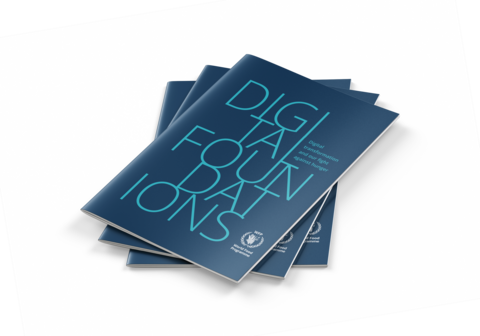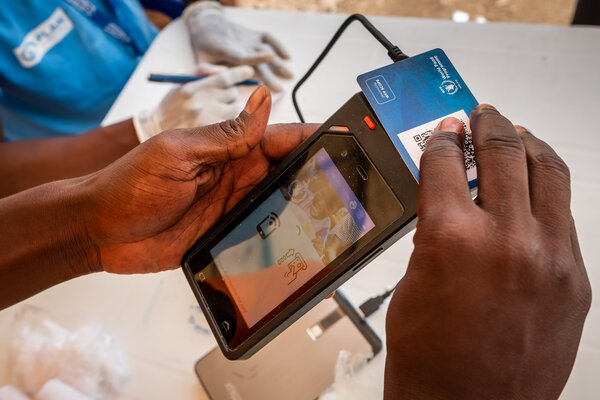Digital transformation and WFP's fight against hunger
At WFP, we believe that digital innovation gives us critical extra capacity in our fight against hunger.
Today, we have the power to monitor the food security of vulnerable, hard-to-reach communities in real time – even from thousands of miles away – thanks to mobile technology. We can support the resilience and empowerment of the communities we serve by providing assistance through secure digital finance tools. Using dynamic data analytics, we can forecast changing climate and crop conditions more accurately than ever before to ensure we stand ready to respond – saving lives and protecting livelihoods.
This did not happen overnight. These outcomes are the result of years of experience and effort by WFP to implement a digital transformation. Used with intelligence, accountability and integrity, digital technology has brought unprecedented speed, efficiency and effectiveness to our mission-critical work in saving lives and changing lives worldwide. And nowhere is this imperative stronger than in the humanitarian sphere, where dollars saved often translate into additional lives saved.
This is why our Executive Director David Beasley made digital transformation an organization-wide priority five years ago – not to upgrade a few useful tools and databases, but to embed data and technology into all aspects of our work and ensure that our knowledge, expertise and resources are used to the greatest possible benefit for those most in need.
Digital Foundations: Digital Transformation and our fight against hunger

The persistence, ingenuity and problem-solving that form the foundations of our digital transformation were cultivated through decades of experience in finding innovative solutions to enhance humanitarian response and delivery.
For example, we have never stopped refining the way we monitor hunger worldwide. WFP’s HungerMapLIVE now features data from 36 monitoring centres, and a machine-learning-based predictive model tracks all aspects of food security in over 90 countries. This helps us better understand the root causes of hunger and to target programmes to address them dynamically.
Whether it’s using advanced analytics to optimize our supply chain routes to deliver personal protective equipment more efficiently in the pandemic, using digital platforms like the UN Booking Hub to help colleagues from across the UN system streamline operations, improving emergency response by using drones to map disaster damage quickly and safely, or using blockchain technology to manage how we distribute benefits to the millions of people we serve, teams across our organization work to identify digital solutions that make our work in the field more effective and efficient at scale.
I’m proud to see our achievements receiving global recognition, most recently with the naming of our Innovation Accelerator as one of the Best Workplaces for Innovators 2021, by FastCompany. Indeed, without the power of innovation and technology, it is hard to imagine the award of the 2020 Nobel Peace Prize to WFP being possible, given their importance to so much of our work.

A major question going forward is this: as the world becomes increasingly digitized, how do we ensure we get the best out of technology while minimizing harm? The challenges of digital rights and security must be met head-on with robust solutions grounded in humanitarian principles and backed up by accountability, due diligence and a focus on people.
Trust and collaboration is also key to our future endeavours. The drive towards digital cooperation is gaining momentum throughout the UN. In fact, we already have the tools and technology needed to share data on hunger with the broader humanitarian and development community, opening access to dynamic data streams and tailored products that can help all of us make smarter, faster and more targeted decisions. WFP supports the UN Secretary-General’s vision for a “UN 2.0” that fully embraces innovation and digital technologies, to ensure the organization is ready to respond to challenges now and in the future.
We are committed to working with our partners and ensuring that all digital transformation is carried out responsibly and in the best interests of the people we serve. As we face global challenges of unprecedented proportions, let us use every tool at our disposal and enlist technology and innovation to work for the public good.
